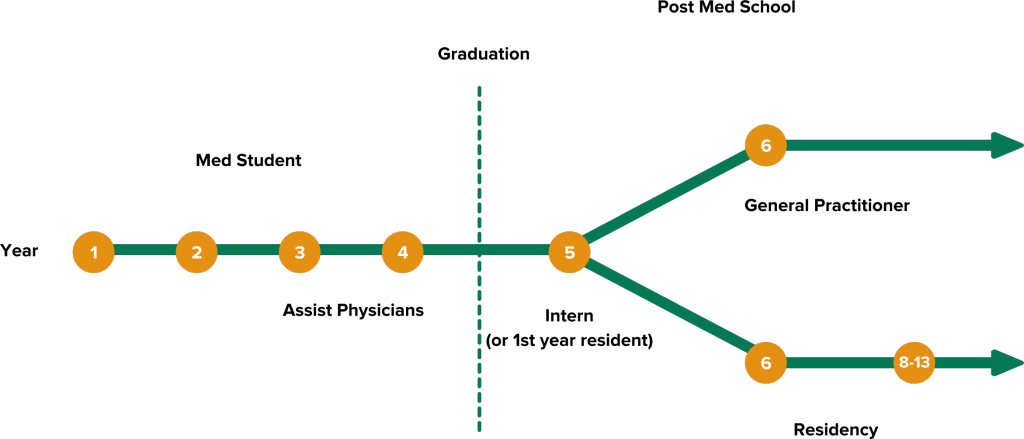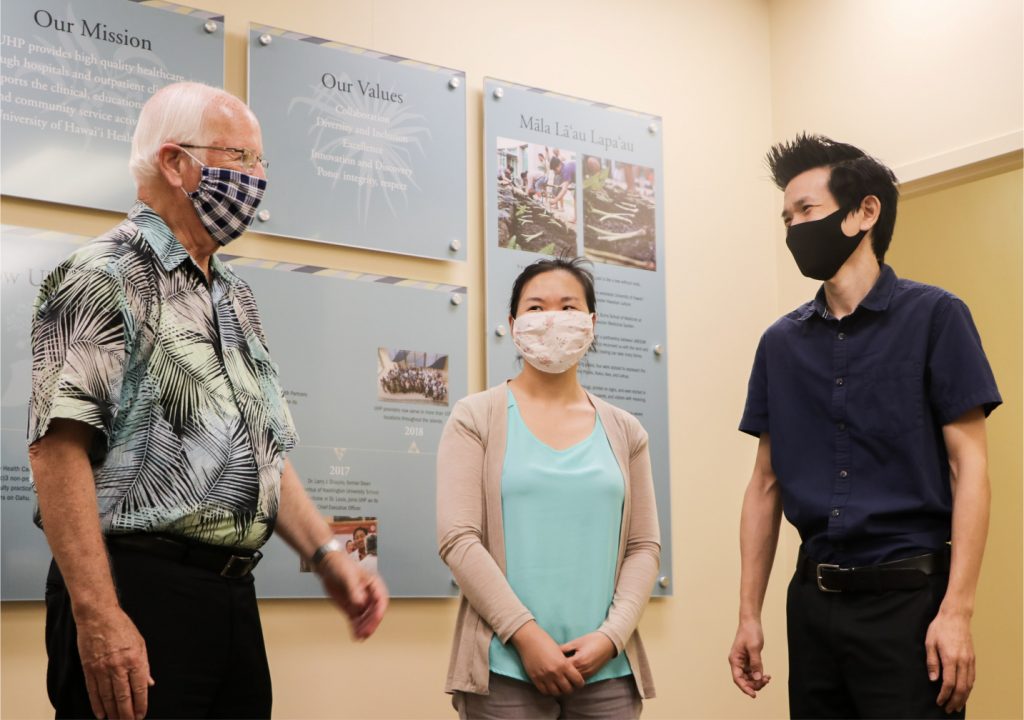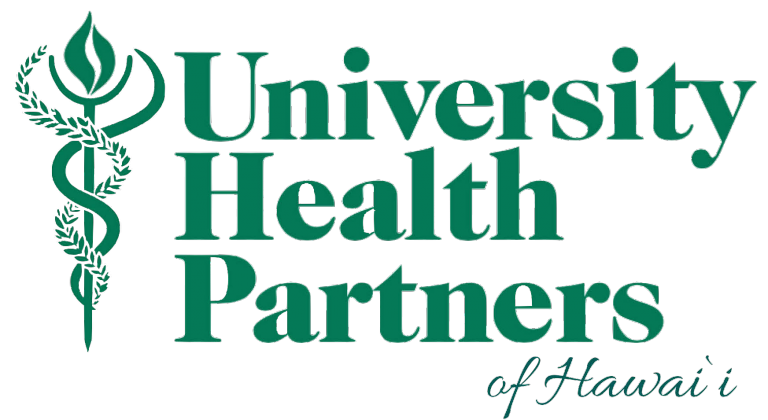Do you know the differences between an intern, resident, attending physician, and consulting physician?
The doctors at University Health partners of Hawaii (UHP) are both medical practitioners and educators. Our doctors are faculty staff of the John A. Burns School of Medicine, teaching future physicians.
Our doctors don’t just care for patients. They teach others how to care for patients by passing on their skills and knowledge to future physicians. That path has several distinct stages.

We often ask our patients if they would consent to having a resident, intern or student involved in their care.
Would you know how to give an informed answer to that question?
Many of us aren’t quite sure. Here’s some information to help clear up the confusion:
Most medical students have already earned their bachelor’s degree and demonstrated that they’re ready to embark on the path to becoming a Doctor of Medicine (MD). The students who assist physicians in a clinical facility are generally in their third or fourth year. Patients might encounter these students in every phase of their medical care. Upon graduation, these new doctors will have several more years of internship and residency training to complete before they will be practicing independently.
At this point, the new doctor enters the first year of post-medical school training known as intern year. Interns (sometimes referred to as first-year residents) are doctors, but they may only practice medicine with guidance and supervision. They traditionally wear short white coats to signify their status as interns.
At completion of the internship year, interns enter residency. At this point, they’ve earned their M.D. degrees and may practice independently as general practitioners. However, the majority of doctors at this level pursue further training as residents. Depending on the chosen specialty, a residency may last from 2 to 7 years. All residents practice under the supervision of senior UHP physicians.

In a medical facility, the the attending physician is the physician who has the major responsibility for a patient’s care. Attending physicians have completed their training and often play an active role in the education of medical students. In addition, they typically have their own practice in their specialty. There are also consulting physicians who may see you and provide consultation to the attending physicians.
So why would you want to see a resident for your medical care or have an intern or student participate in your treatment?
We understand that some people might be skeptical about being treated by a newly trained doctor. However, there are benefits to seeing a resident for medical care—benefits for the individual patient as well as for our community. Typically, residents have more time to spend with their patients. remember that when you’re in the care of a resident physician, you still benefit from the experience of the attending (supervising) physician. Our faculty physicians instruct residents in the latest innovations, technology, and approaches to medicine. That’s what we mean when we say that UHP provides you with Tomorrow’s Healthcare Today.
And how does the community benefit from this arrangement?
Our patients contribute to the health of Hawaii by participating in the education and development of physicians in our community. With the shortage of doctors in Hawaii and elsewhere, this is an important contribution.
Doctors tend to stay where they do their residencies. We provide opportunities for newly graduated medical students to become interns and residents here in Hawaii, which helps to keep our doctors in the Islands where they’re so badly needed. UHP patients also help new doctors develop interpersonal skills and experience to help them develop into the competent and confident medical experts we look to when we’re in need of care.
So now, when you encourage your friends and family members to see our doctors, you can tell them that they’re not only getting excellent healthcare for themselves, they’re also helping to keep our island home healthy!

